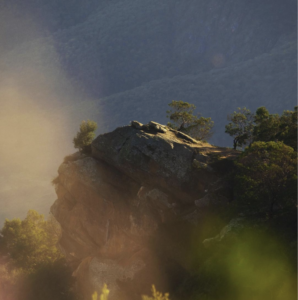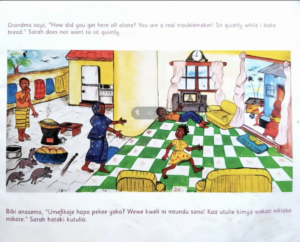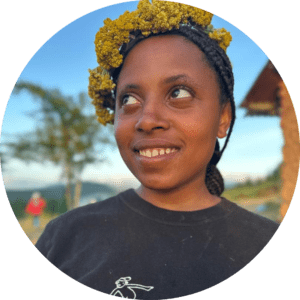My first language is Swahili. It is is a language spoken by about 90 million people, and for two to eighteen million, it is their first language. It is the official language of four countries: Tanzania, Kenya, Rwanda, and Uganda. It is also recognized in several other countries as a minority language.
Today I will share with you some basic words of Swahili.
Samahani means “excuse me”. So samahani if I make a mistake.
Ndio means “yes” and hapana means “no”.
Habari yako? means “how are you?”
You would answer nzuri to say “I’m fine” or sio nzuri to say that you are not too well.
If you are very sorry for someone – for example, because they slipped and hit their head on a metal bar, as one of my teachers once did – you would say pole sana.
Below, you can see a book printed in both Swahili and English. I used it to learn English, but you can use it to figure out some additional words in Swahili.





